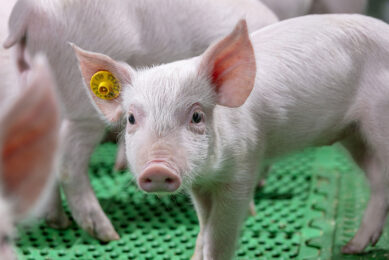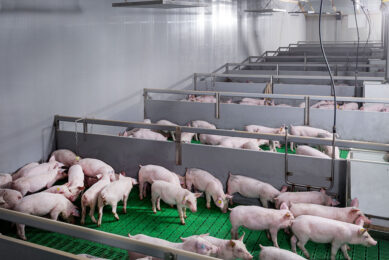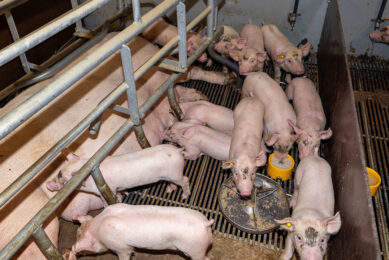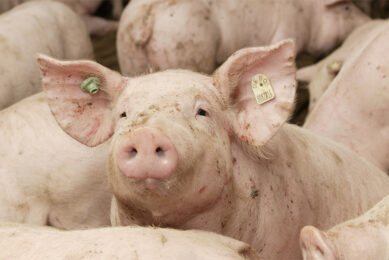Professor Jaroslaw Dastych: Novel antibacterial solution for poultry

How to meet the need to reduce antibiotics usage in poultry farming and make an even bigger impact by improving on-farm performance and sustainability? An interview with Professor Jarosław Dastych gives some insights.
Part of the Gut Health 2022 Special
The antimicrobial resistance (AMR) is a global challenge. Consumers are becoming more aware of the problem and it is one of the reasons why the demand for antibiotic-free food is rising. Do you see it more as a lasting trend or rather a temporary fad?
AMR is called one of the global challenges by the World Health Organization. Farmed animals consume 80% of all antibiotics, so the frontline in the fight against AMR is on farms and in aquaculture. Growing bacterial resistance to antibiotics is a public health threat as it reduces the access to effective treatments. After having experienced Covid pandemic, society has become more alert to a potential global health risk. Moreover, food for health, increasing sustainability and the role of the microbiome are among megatrends expected for the food industry – indicating a rather strong and consistent change in customer expectations and behaviours.
How is antibiotic-free food better for consumers?
First of all, because of growing AMR, antibiotics have been ceasing to be a good solution in animal production in a natural way. Secondly, they lower the quality of food by leaving residues in meat and eggs, creating further challenges. While antibiotics are miracle drugs that save lives, we want to withdraw them as much as possible from the food chain. With scientific revolution, understanding the microbiome, the impact on human health and food production – all of these factors contribute to the emergence of alternative, better solutions.
How can food producers limit the usage of antibiotics without compromising food safety? What are the alternatives you mentioned?
At Proteon Pharmaceuticals, we have developed an innovative precision technology platform which enables creating products based on naturally occurring bacteriophages. Bacteriophages are the smallest, most numerous organisms on the planet. Their purpose is to fight with bacteria in the body/nature. Phages are viruses that infect only bacterial cells, and thus since their discovery over 100 years ago have been proposed as antimicrobial agents. Phages were used as antibacterial therapies in the 1920s and 30s but steadily fell out of favour following the discovery and mass production of antibiotics. Bacteriophages are the proven, serious competitor to antibiotics when it comes to controlling pathogenic bacteria. Proteon’s phage-based products are an exciting alternative, as bacteriophage well-designed cocktails are very effective against the different pathogenic bacteria species. Working against selected pathogenic strains, they do not contribute to the development of antibiotic resistance. They function by modulating the microbiome and enabling prophylactic health. They are not a simple replacement for antibiotics, however, they have a number of other beneficial features.
What are these other beneficial features offered by bacteriophages?
Proteon’s phage-based products themselves are natural and organic. They leave no residues. Used in animal farming, they positively modulate the microbiome and contribute to obtaining better production results and healthier food.
Our products support animal health and welfare while reducing the negative impact on the environment, being a part of sustainable agriculture. This is a significant additional value, which is becoming more and more important for the entire industry. Additionally, Proteon’s products support UN Sustainable Development Goals, including zero hunger, good health and well-being, climate action and responsible consumption.
That does indeed sound exciting. How about side-effects and safety? Do bacteriophage-based products create any type of resistance?
Proteon’s products do not cause any side effects and they leave no residues. They do not have any negative impact on microflora, as bacteriophages cease to function when they neutralise all targeted bacteria. They are also completely natural, safe and not genetically modified. Safety of one of the first Proteon’s phage products was approved by the European Food Safety Authority (EFSA). Bacteria striving to develop resistance against phages have quite a difficult task, since phages also react to the changes and they keep evolving and by-passing the bacterial defence mechanisms. The specificity of bacteriophage action may seem to be a disadvantage, however, for the prevention or treatment of diseases, specificity is highly desirable.
At what stage and how do you use such products? Can you give us an example?
Proteon Pharmaceuticals has commercialised its first 3 products in a few countries around the globe and they are registered as feed additives. The first 2 of them are dedicated to poultry and the other one is intended for aquaculture. We currently have 5 additional products in our pipeline. Proteon’s vision of sustainable livestock farming has become a reality with the development of our Bafasal+G product. It is a liquid feed additive that can be simply added to the drinking water on poultry farms, preventing the colonisation of Salmonella. Bafasal+G improves bird’s health and performance by reducing bacterial load throughout the life cycle. The additive can be introduced at various points in the poultry life-cycle, though it is recommended to use it from hatching due to the young animals susceptibility to Salmonella. Salmonella is the most reported cause of foodborne outbreaks in the European Union – nearly one in three foodborne outbreaks in the EU in 2018 were caused by this bacteria. Proteon Pharmaceuticals’ product Bafasal+G contribution to reduce the risk of Salmonella transmission will help to further improve food safety and quality, thereby reducing consumer risk.
 Beheer
Beheer





 WP Admin
WP Admin  Bewerk bericht
Bewerk bericht